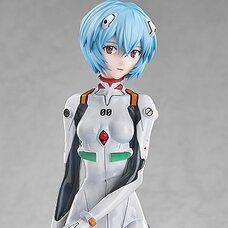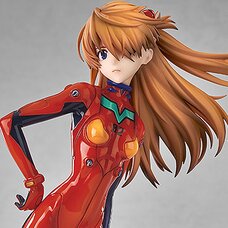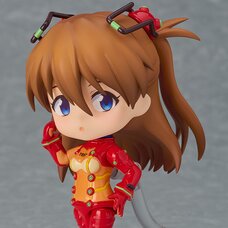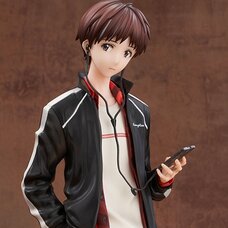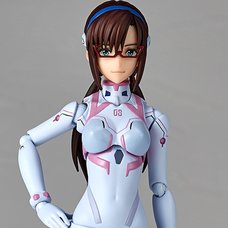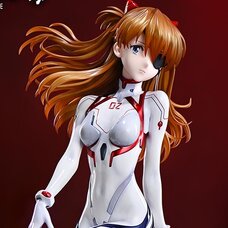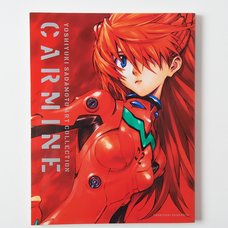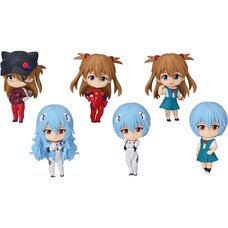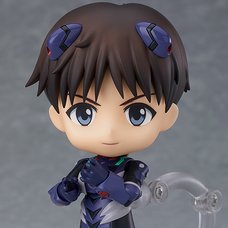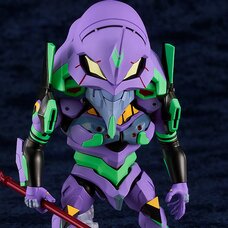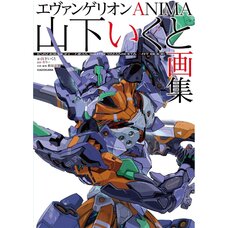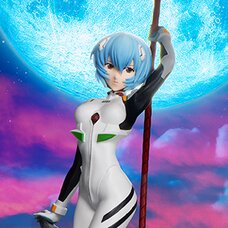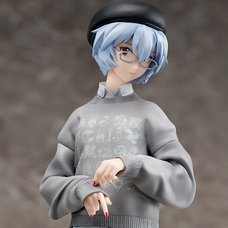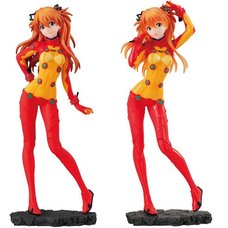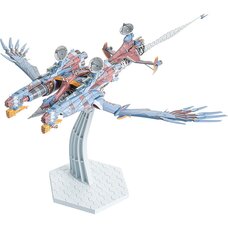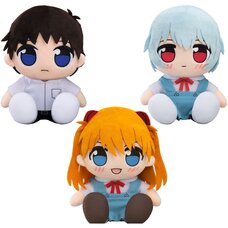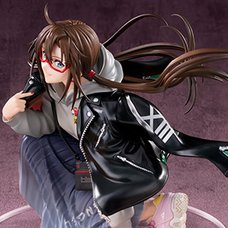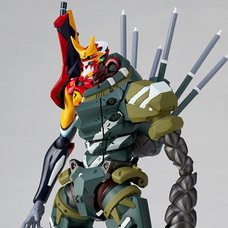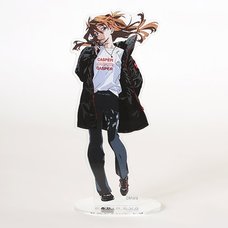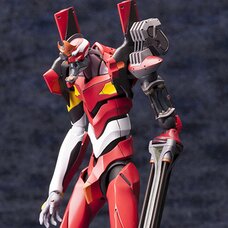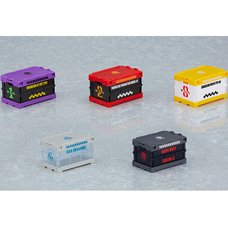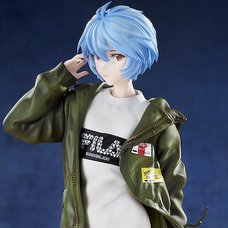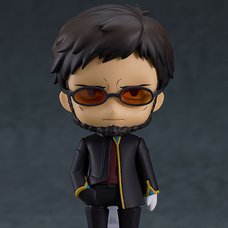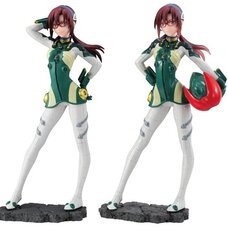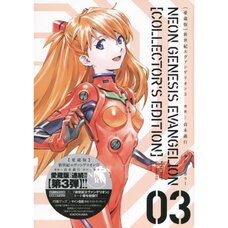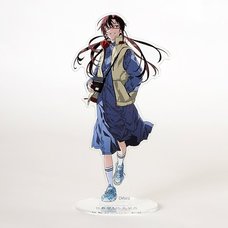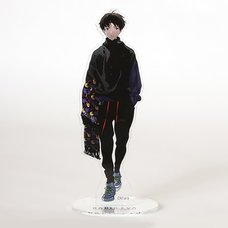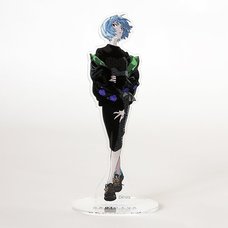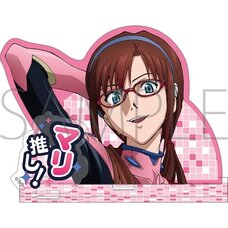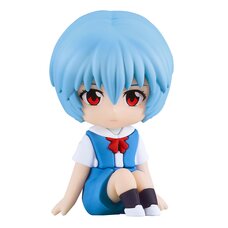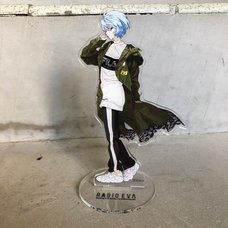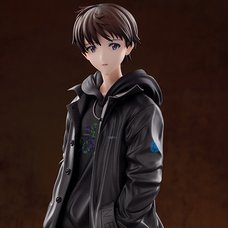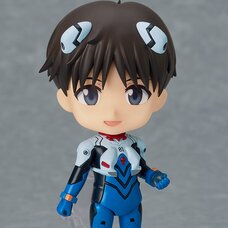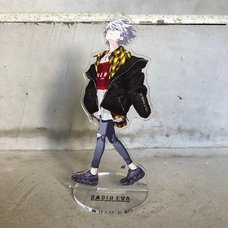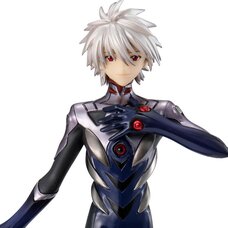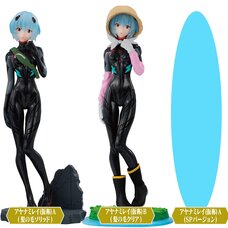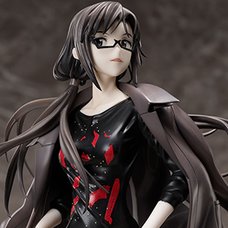[ About Evangelion ]
Neon Genesis Evangelion, commonly referred to as Evangelion, or EVA, is a Japanese media franchise created and owned by Gainax. It is an apocalyptic mecha action story with heavy religious (Christianity, Kabbalah, Judaism, Buddhism, and Shinto), psychological (influenced by Sigmund Freud, Jacques Lacan, and others), and philosophical themes (influenced by Arthur Schopenhauer, Jean-Paul Sartre, and others).
Watch Neon Genesis Evangelion on Otapedia
The story follows teenagers chosen to pilot mecha called Evangelions used by the paramilitary organization NERV to fight hostile beings called Angels posing a worldwide existential threat to mankind. The series is well-known for it deep psychoanalysis of its characters rather than only its brutal mecha action.
The original manga debuted in Shonen Ace December 1994. Shortly thereafter an anime written and directed by Hideaki Anno began broadcasting October 1995. Since then, films; games; audio books; radio dramas including the parody radio drama Neon Genesis Evangelion – After the End; art books including the Groundwork of Evangelion art book trilogy; light novels including Neon Genesis Evangelion: ANIMA set in an alternative future; doujinshi including Birth of Evangelion by Yun Koga and Evangelion RE-TAKE by Studio Kimigabuchi; themed pachinko machines; collectable merchandise; high-end electronics; and more merchandise inspired by Evangelion have been created.
[ Manga ]
Neon Genesis Evangelion
Genre: mecha / apocalyptic / psychological
Author: Yoshiyuki Sadamoto
Publisher: Kadokawa Shoten
Magazine: Shonen Ace (1994 - 2009) / Young Ace (2009 - 2013)
Original Run: Dec. 26, 1994 - June 4, 2013
Volumes: 14
Neon Genesis Evangelion: Angelic Days (derivative work)
Genre: romantic comedy
Author: Fumino Hayashi
Publisher: Kadokawa Shoten
Magazine: Asuka
Original Run: November 2003 - 2005
Volumes: 6
Shinji Ikari Raising Project (derivative work)
Genre: comedy / drama / romance
Author: Takahashi Osamu
Publisher: Kadokawa Shoten
Magazine: Shonen Ace
Original Run: June 2005 - February 2016
Volumes: 18
Neon Genesis Evangelion: Campus Apocalypse (derivative work)
Genre: action / drama / fantasy / sci-fi
Author: Min Min
Publisher: Kadokawa Shoten
Magazine: Asuka
Original Run: October 2007 - December 2009
Volumes: 4
[ Anime ]
Neon Genesis Evangelion
Genre: mecha / apocalyptic / psychological
Director(s): Hideaki Anno
Producer(s): Noriko Kobayashi & Yutaka Sugiyama
Music: Shiro Sagisu
Studio(s): Gainax & Tatsunoko Production
Network: TXN (TV Tokyo)
Original Run: Oct. 4, 1995 - Mar. 27, 1996
Episodes: 26
[ Films ]
Evangelion: Death & Rebirth
Director(s): Hideaki Anno, Masayuki & Kazuya Tsurumaki
Producer: Mitsuhisa Ishikawa
Screenplay: Hideaki Anno
Music: Shiro Sagisu
Cinematography: Hisao Shirai & Yoichi Kuroda
Production Companies: Kadokawa Shoten, TV Tokyo, Sega Corporation, Production I.G, Movic, Starchild & Gainax
Release Date: March 15, 1997
Theme Song: “Tamashii no Refrain” performed by Yoko Takahashi
Two films make up Evangelion: Death & Rebirth: Death and Rebirth. Death, the first film, is an edited version of the first 24 episodes of Neon Genesis Evangelion plus additional original content. Rebirth, the second film, consists of all original content that was later used at the start of The End of Evangelion.
The End of Evangelion
Director(s): Hideaki Anno & Kazuya Tsurumaki
Producer: Mitsuhisa Ishikawa
Screenplay: Hideaki Anno
Music: Shiro Sagisu
Cinematography: Hisao Shirai
Production Companies: Production I.G & Gainax
Release Date: July 19, 1997
Theme Song: “Thanatos (If I Can't Be Yours)” performed by LOREN & MASH
The End of Evangelion is divided into two episodes: Episode 25': Air / Love is Destructive and Episode 26': My Purest Heart for You, Sincerely Yours / ONE MORE FINAL: I need you. Both Evangelion: Death & Rebirth and The End of Evangelion were released to provide alternative endings to Neon Genesis Evangelion in response to fans’ requests for one.
Rebuild of Evangelion (Tetralogy)
Director(s): Hideaki Anno (Chief) & Kazuya Tsurumaki, Masayuki & Mahiro Maeda (Film 3)
Producer(s): Hideaki Anno & Toshimichi Otsuki
Screenplay: Hideaki Anno
Music: Shiro Sagisu w/ performance by the London Studio Orchestra
Production Company: Studio Khara
Films:
Evangelion: 1.0 You Are (Not) Alone.
Release Date: Sep. 1, 2007
Box Office: $18.8 million
Theme Song: “Beautiful World” by Hikaru Utada
Evangelion: 2.0 You Can (Not) Advance.
Release Date: June 27, 2009
Box Office: $41.2 million
Theme Song: “Beautiful World (Planitb Acoustica Mix)” by Hikaru Utada
Evangelion: 3.0 You Can (Not) Redo.
Release Date: Nov. 17, 2012
Box Office: $60.5 million
Theme Song: “Sakura Nagashi” by Hikaru Utada w/ help from Paul Carter
Evangelion: 3.0+1.0
Release Date: TBA
Rebuild of Evangelion is a tetralogy of films consisting of Evangelion: 1.0 You Are (Not) Alone., Evangelion: 2.0 You Can (Not) Advance., Evangelion: 3.0 You Can (Not) Redo., and Evangelion: 3.0+1.0. The films are a reimagining of the Neon Genesis Evangelion anime by director Hideaki Anno who has stated that he was happy to finally recreate the series “as he wanted it to be” since the movies did not have the technological and financial restraints of the anime series. The films also introduce new scenes, settings, and characters. The final fourth film will provide a completely new conclusion to the story.
[ Games ]
RPG / Adventure / Visual Novel
There have been 12 RPG / adventure / visual novel games released. Two are featured below.
Neon Genesis Evangelion: 1st Impression
Release Date: Mar. 1, 1996
Platform: Sega Saturn
Neon Genesis Evangelion: Girlfriend of Steel
Release Date: Mar. 1, 1996
Platform: Playstation, Playstation 2, PSP, Sega Saturn, Microsoft Windows & Macintosh
About: Set in an alternative, normal timeline. It later inspired the spin-off manga series Neon Genesis Evangelion: Angelic Days.
Mahjong / Card Games / Other
There have been 4 mahjong games, 3 card games, and 12 other games released. One is featured below.
Neon Genesis Evangelion: Typing Project-E
Release Date: 1999
Platform: Dreamcast & Playstation 2
About: Evangelion themed game for learning how to type.
[ Characters ]
Shinji Ikari
Protagonist and poster boy Shinji Ikari is the Third Child and pilot of Eva Unit 01. He is voiced by Megumi Ogata. Although he has anti-hero traits, shrinks from human contact, is extremely afraid of being hurt, suffers from an Oedipus complex, and a libido-destrudo conflict he is highly regarded and found to be relatable by both fans and critics.
Rei Ayanami
Rei Ayanami is the First Child and pilot of Eva Unit 00. She is voiced by Megumi Hayashibara. Bitterly unhappy and fully aware that she is expendable, Rei has a quiet, almost catatonic personality.
Asuka Langley Soryu
American of german descent Asuka Langley Soryu is the Second Child and pilot of the Eva Unit 02. She is voiced by Yuko Miyamura. She showed excessive pride until a brutal defeat caused her to have a mental breakdown.
Kaworu Nagisa
Kaworu Nagisa is both the Fifth Child and 17th Angel, Tabris as well as the replacement pilot of Eva Unit 02. He is voiced by Akira Ishida. His popularity among fans is said to be due in part to his sex appeal.
Mari Illustrious Makinami
Fans regard Mari Illustrious Makinami as the Fourth Child although that is not official. She is the confident and eccentric pilot of the Provisional Eva Unit 5. She is voiced by Maaya Sakamoto.
Angels
The antagonists of the work are Angels - supernatural beings who attack Tokyo 3. Their names are Adam, Lilith, Sachiel, Shamshel, Ramiel, Gaghiel, Israfel, Sandalphon, Matarael, Sahaquiel, Ireul, Leliel, Bardiel, Zeruel, Arael, Armisael, Tabris, and Lilin. Although they share 98.89% of their genetic code with humans, they take on different giant forms and have devastating abilities that differ even between Angels. All the Eva Units except Eva Unit 01 were created using cells from Adam; Cells from Lilith were used to created Eva Unit 01.
[ Fun Facts ]
・There is an official Evangelion store called the Eva Store that sell exclusive merchandise online and in Japan. They occasionally offer collaborative products like the Eva Colon: series by illustrator Yurie Sekiya that included merchandise with kawaii, pastel illustrations of the main characters as chibis.
・Evangelion has inspired numerous derivative works into creation including the parody series Petit Eva: Evangelion@School, the romantic comedy manga set in an alternative, normal timeline Neon Genesis Evangelion: Angelic Days, and the manga Neon Genesis Evangelion: Campus Apocalypse.
・The Japanese amusement park Fuji-Q Highland features a 1,460 m² Evangelion area that includes a lifesize entry plug and statue of Mari Makinami, a 3 meter titanium Lance of Longinus, NERV hallways with character cutouts, a 1:1 bust of Eva Unit 01 and Eva Unit 02, SEELE monoliths, themed hotel rooms, and more.
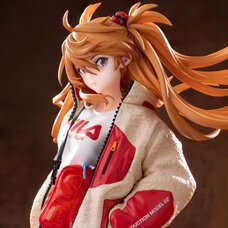
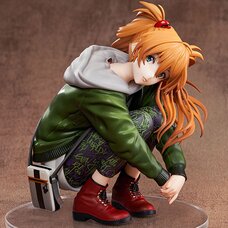
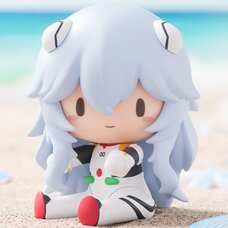
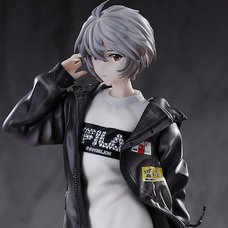
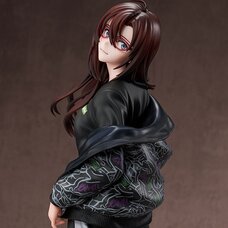
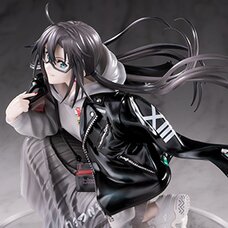
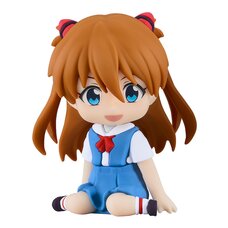
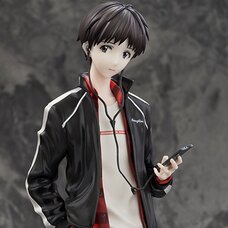
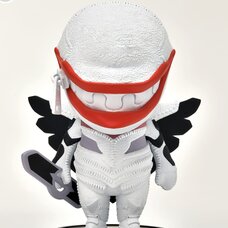
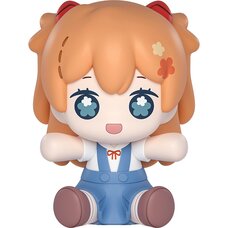

 Shopping Guide
Shopping Guide